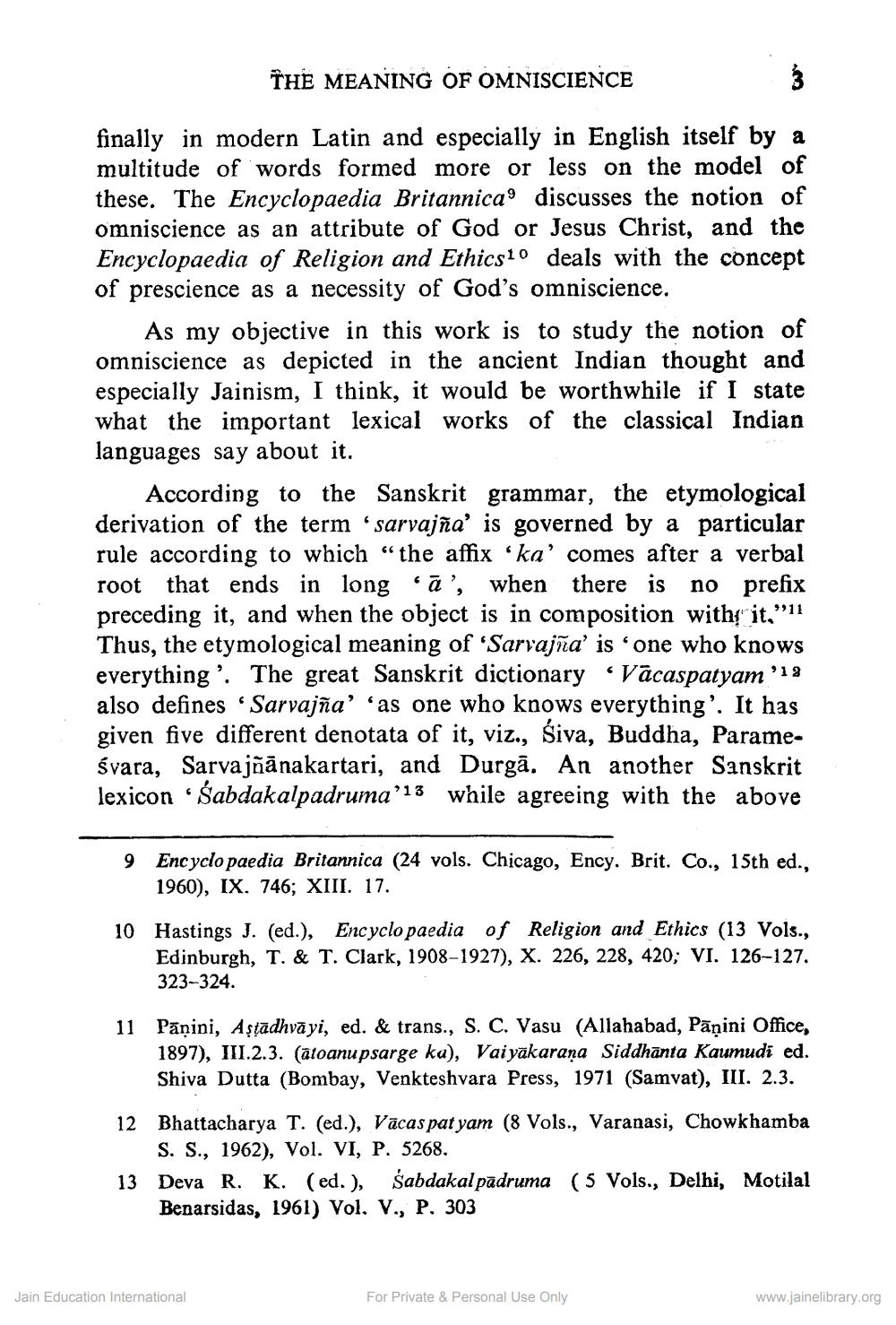________________
THE MEANING OF OMNISCIENCE
finally in modern Latin and especially in English itself by a multitude of words formed more or less on the model of these. The Encyclopaedia Britannica discusses the notion of omniscience as an attribute of God or Jesus Christ, and the Encyclopaedia of Religion and Ethics10 deals with the concept of prescience as a necessity of God's omniscience.
As my objective in this work is to study the notion of omniscience as depicted in the ancient Indian thought and especially Jainism, I think, it would be worthwhile if I state what the important lexical works of the classical Indian languages say about it.
According to the Sanskrit grammar, the etymological derivation of the term 'sarvajña' is governed by a particular rule according to which "the affix 'ka' comes after a verbal root that ends in long a', when there is no prefix preceding it, and when the object is in composition with it."" Thus, the etymological meaning of 'Sarvajña' is 'one who knows everything'. The great Sanskrit dictionary Vacaspatyam '1o also defines Sarvajña' 'as one who knows everything'. It has given five different denotata of it, viz., Śiva, Buddha, Parameśvara, Sarvajñānakartari, and Durgā. An another Sanskrit lexicon Sabdakalpadruma'13 while agreeing with the above
C
9 Encyclopaedia Britannica (24 vols. Chicago, Ency. Brit. Co., 15th ed., 1960), IX. 746; XIII. 17.
10 Hastings J. (ed.), Encyclopaedia of Religion and Ethics (13 Vols., Edinburgh, T. & T. Clark, 1908-1927), X. 226, 228, 420; VI. 126-127. 323-324.
11 Panini, Astādhvayi, ed. & trans., S. C. Vasu (Allahabad, Panini Office, 1897), III.2.3. (atoanupsarge ka), Vaiyakarana Siddhanta Kaumudi ed. Shiva Dutta (Bombay, Venkteshvara Press, 1971 (Samvat), III. 2.3.
12 Bhattacharya T. (ed.), Vacas patyam (8 Vols., Varanasi, Chowkhamba S. S., 1962), Vol. VI, P. 5268.
13 Deva R. K. (ed.), Benarsidas, 1961) Vol. V., P. 303
Jain Education International
Šabdakal pādruma (5 Vols., Delhi, Motilal
For Private & Personal Use Only
www.jainelibrary.org




